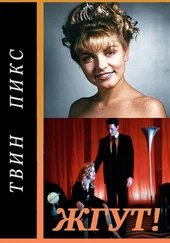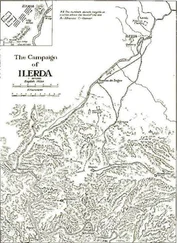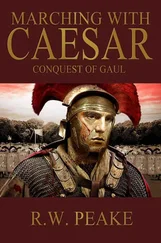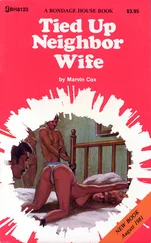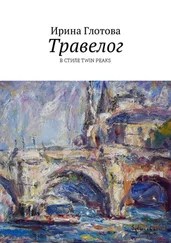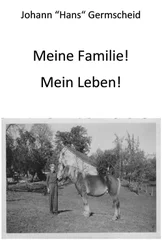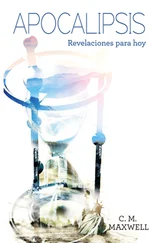Peake, Mervyn - 02 Gormenghast
Здесь есть возможность читать онлайн «Peake, Mervyn - 02 Gormenghast» весь текст электронной книги совершенно бесплатно (целиком полную версию без сокращений). В некоторых случаях можно слушать аудио, скачать через торрент в формате fb2 и присутствует краткое содержание. Жанр: Старинная литература, на русском языке. Описание произведения, (предисловие) а так же отзывы посетителей доступны на портале библиотеки ЛибКат.
- Название:02 Gormenghast
- Автор:
- Жанр:
- Год:неизвестен
- ISBN:нет данных
- Рейтинг книги:4 / 5. Голосов: 1
-
Избранное:Добавить в избранное
- Отзывы:
-
Ваша оценка:
- 80
- 1
- 2
- 3
- 4
- 5
02 Gormenghast: краткое содержание, описание и аннотация
Предлагаем к чтению аннотацию, описание, краткое содержание или предисловие (зависит от того, что написал сам автор книги «02 Gormenghast»). Если вы не нашли необходимую информацию о книге — напишите в комментариях, мы постараемся отыскать её.
02 Gormenghast — читать онлайн бесплатно полную книгу (весь текст) целиком
Ниже представлен текст книги, разбитый по страницам. Система сохранения места последней прочитанной страницы, позволяет с удобством читать онлайн бесплатно книгу «02 Gormenghast», без необходимости каждый раз заново искать на чём Вы остановились. Поставьте закладку, и сможете в любой момент перейти на страницу, на которой закончили чтение.
Интервал:
Закладка:
As though to fight back against the circumscribing darkness the hierophants had lighted every available lantern, burner, candle and lamp, and had even improvised an extraordinary variety of reflectors, of tin and glass, and even trays of gold and plates of burnished copper. Long before any message could have been couriered across the body of Gormenghast, there was not a limb, not a digit that had not responded to the universal sense of suffocation, not the merest finger joint of stone that had not set itself alight.
Countless candles dribbled with hot wax, and their flames, like little flags, fluttered in the uncharted currents of air. Thousands of lamps, naked, or shuttered behind coloured glass, burned with their glows of purple, amber, grass-green, blue, blood red and even grey. The walls of Gormenghast were like the walls of paradise or the walls of an inferno. The colours were devilish or angelical according to the colour of the mind that watched them. They swam, those walls, with the hues of hell, with the tints of Zion. The breasts of the plumaged seraphim; the scales of Satan.
And Steerpike, moving rapidly through these varying flushes, could hear the loudening of the rain. He had come to something very like an isthmus - a corridor with circular windows on either side that gave upon the outer darkness. This arcade, or cover-way - this isthmus that joined together one great mass of sprawling masonry to another, was illumined along its considerable length at three more or less regular intervals by firstly a great age-green oil lamp with an enormous wick as wide as a sheep's tongue. The glass globe that fitted over it was appallingly ugly; a fluted thing, a piece missing from its lower lip. But its colour was something apart - or rather the colour of the glass when lit from behind, as it now was. To say it was indigo gives no idea of its depth and richness, nor of the underwater or cavernous glow that filled that part of the arcade with its aura.
In their different ways the other two lamps, with their globe of sullen crimson and iceberg green, made within the orbits of their influence, arenas no less theatrical. The glazed and circular windows, dark as jet, were yet not featureless. Across the blind blackness of those flanking eyes the strands of rain which appeared not to move but to be stretched across the inky portholes like harp strings - these strands, these strings of water burned blue, beyond the glass, burned crimson, burned green, for the lamplight stained them. And in the stain was something serpentine - something poisonous, exotic, feverish and merciless; the colours were the colours of the sea-snake, and beyond the windows on either hand, was the long-drawn hiss of the reptilian rain.
And while Steerpike sped along this covered-way, the shadow that he cast changed colour. Sometimes it was before him as though eager to arrive at some rendezvous before the body of its caster; and sometimes it followed him, sliding at his heels, dogging him, changing its dark colour as it flowed.
With the isthmus behind him, and a continent of stone once more about him, a continent into whose fastnesses he moved the deeper with every step and with every breath he took, Steerpike banished from his mind every thought of the Twins and of their behaviour. His mind had been largely taken up with conjecture as to the cause of their insurrection, and with tentative plans for their disposal.
But there were matters more pressing and one matter in particular. With enviable ease he emptied his mind of their ladyships and filled it with Barquentine.
His shadow moved upon his right hand. It was climbing a staircase. It crossed a landing. It descended three steps. It followed for a short while at its maker's heels and then overtook him. It was at his elbow when it suddenly deepened its tone and grew up the side of the wall until the shadow-head twelve feet above the ground, pursued its lofty way, the profile undulating from time to time, when it was forced to float across the murky webs that choked the junction of wall and ceiling.
And then the giant shade began to shrivel, and as it descended it moved a little forward of its caster, until finally it was a thick and stunted thing - a malformation, intangible, terrible, that led the way towards those rooms where its immediate journey could, for a little while, be ended.
THIRTY-NINE
Barquentine in his room sat with his withered leg drawn up to his chin. His hair, dirty as a fly-blown web, hung about his face, dry and lifeless. His skin, equally filthy, with its silted fissures, its cheese-like cracks and discolorations, was dry also - an arid terrain, dead it seemed, and waterless as the moon, and yet, at its centre those malignant lakes, his vile and brimming eyes.
Outside the broken window at the far end of the room lay stretched the stagnant waters of die moat.
He had been sitting there, his only leg drawn up to his face, his crutch leaning against the back of his chair, his hands clasped about his knee, a hank of his beard between his teeth - he had been sitting there, for over an hour. On the table before him at least a dozen books lay spread; books of ritual and precedence, books of cross-reference, ciphers and secret papers. But his eyes were not on them. No less ruthless for being out of focus and gleaming wetly in their dry sockets, they could not see that a shadow had entered the room - that intangible as air, yet graphic to a degree, it had reared itself against high tiers of books - books of all shapes and in every stage of dilapidation, that glimmered in the bad light save where this shadow lay athwart them, black as a shade from hell.
And while he sat there, what was he thinking of, this wrinkled and filthy dwarf?
He was thinking of how a change had come over the workings of Gormenghast - over the workings of its heart and the temper of its brain. Something so subtle that he could in no way fix upon it. Something that was not to be located in the normal way of his thinking yet something which, nevertheless, was filling his nostrils with its odour. He knew it to be evil, and what was evil in the eyes of Barquentine was anything that smelt of insurrection, anything that challenged, or worked to undo the ancient procedures.
Gormenghast was not what it was. He knew it. There was devilry somewhere among these cold stones. And yet he could not put his finger upon the spot. He could not say what it was that was now so different. It was not that he was an old man. He was not sentimental about the days of his youth. They had been dark and loveless. But he had no pity for himself. He had only this blind, passionate and cruel love for the dead letter of the castle's law. He loved it with a love as hot as his hate. For the members of the Groan line itself he had less regard than for the meanest and drearest of the rituals that it was their destiny to perform. Only in so far as they were symbols did he bow his ragged head. He had no love for Titus - only for his significance as the last of the links in the great chain. There was something about the way the boy moved... a restlessness, an independence, that galled him. It was almost as though this heir to a world of towers had learned of other climes, of warm, clandestine lands, and that the febrile and erratic movements of the child's limbs were the reflection of what lived and throve in his imagination. It was as though his brain, in regions remote and seductive, was sending its unsettling messages to the small bones, to the tissues of the boy, so that there was, in his movements, something remote and ominous.
But Barquentine, knowing that the seventy-seventh earl had never moved as far as a day's journey from his birthplace, spat, as it were, these reflections from his puzzled brain. And yet the taste lingered. The taste of something acid; something rebellious. The young earl was too much himself. It was as though the child imagined he had a life of his own apart from the life of Gormenghast.
Читать дальшеИнтервал:
Закладка:
Похожие книги на «02 Gormenghast»
Представляем Вашему вниманию похожие книги на «02 Gormenghast» списком для выбора. Мы отобрали схожую по названию и смыслу литературу в надежде предоставить читателям больше вариантов отыскать новые, интересные, ещё непрочитанные произведения.
Обсуждение, отзывы о книге «02 Gormenghast» и просто собственные мнения читателей. Оставьте ваши комментарии, напишите, что Вы думаете о произведении, его смысле или главных героях. Укажите что конкретно понравилось, а что нет, и почему Вы так считаете.

